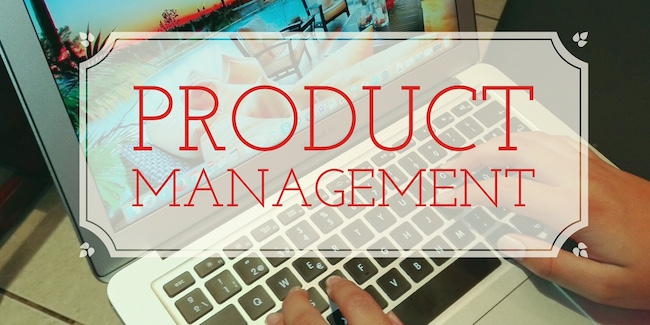Effective product management is the most crucial factor for making any product more desirable in the market.
Product management can involve many processes in a business from the concept of the idea, through the supply chain, sales funnel, and out to your customers — especially is you are the entrepreneur and the only one in your business.
The business management of any product may be in the form of providing service or solutions over entire life cycle to generate larger output to the business. A successful product manager is the one who masters these life cycle processes of any product. They must gather and understand all the perspectives regarding the priorities and proposition of any product well before the production.
It does not matter what type of business you are working with; product management is imperative. In any organization, you need to have proper roadmap or strategy in order to release your final product to the customers on time.
Here we are giving you an overview of effective product management and associates product managers’ role.
Table of Contents
ToggleDefine roles and responsibilities for product managers
For effective product management, every organization must assign their product managers with definite roles and responsibilities. You may set up and plan for plenty of product management roles which are crucial for your organisations’ growth.
Engagement between product management and other functional areas
For better management, it is important to have better engagement with other functional areas. As a product manager, you need to use non-defensive body language and try to place yourself on the other employee’s level.
You are required to be more critical and rational, yet also maintain your integrity. Though product managers are the ones responsible for product success, they are also dependent on the other functional areas for the completion of the product and require marketing strategies.
Roles of Product Manager
Strategically Analyzing And Thinking
The basic requirement in any decision-making process is the collection of sufficient data and analyzing them strategically. For effective product management, it is important to collect all the customer related data and analyze this data in an efficient manner before even jumping into developing any product.
This stage has so very many points to it that there is an enormous amount of information connected with the how-to. If this is your own company, then some of the duties will be different than they would be in a traditional company.
The customer is going to be your main focus. You will want to know exactly who your customer is, what they think, feel, say and do. What need are you fulfilling? All of this information you gather can potentially be what makes or breaks this company. All of this data gather into one whole will be what gives you the precise idea regarding what to develop to meet the demand of your organization.
De-escalate the Immediate Situation
There may be certain times when you will have to agree to disagree. You will be called upon to use proper techniques in order to de-escalate certain situations which will generally be the immediate situation. You will have to figure out how to allow the other people to do whatever they were hired to do, and what they want to do, which may or may not be what you were thinking about.
Remembering that it is better to walk away from a situation at times and revisit it later when all the emotions have been side-lined. Why should a product manager have to fulfill this role? Well, managing the product is not just managing the product — it’s managing and constant negotiation with others.
Focus on Outcomes and Follow Through
Always try to explore better options for your product, service, and for the people you are managing. Often asking questions for clarification and additional information is all that is needed in a situation. Afterwards, the focus can return to finding the solutions you are working on. Look for workable or realistic options for your workers; as well as for your product or production of service. Also clarify or examine potential consequences of actions either way. Such as: if our product works this way, what is the result, or consequence — if our service does such and such, what is the consequence to our company?
Being Enthusiastic and Critical
As a product manager, you need to be enthusiastic and motivated. You should have a belief in your product. You will know the answer to the questions of how this product is going to meet the customer’s demands, and also, you will know the answers to the benefits your product will provide to its users.
At the end of the day, you will make decisions about whether this particular project is worth the investment. As a result of the product manager having a handle on all aspects of the product, decisions may be difficult. However, it will not be difficult to motivate others. When you share your vision with employees, the motivation can become infectious. Your people can share the same feelings and enthusiasm as you do.
Sadly, you cannot merely be the cheerleader. That would be so much more fun. As the product manager you will have to balance between being naive and too enthusiastic — and being critical.
Always look for the opportunities to pivot, or to add more utility to the product.
Coordination and Communication
The key mantra for any organizations growth is; the better coordination and communication between the product management and other functional areas in the business, the clearer the path to the growth which can flow into the business.
When all the functional areas of the organization start communicating, then products start to reach a new level of excellence.













